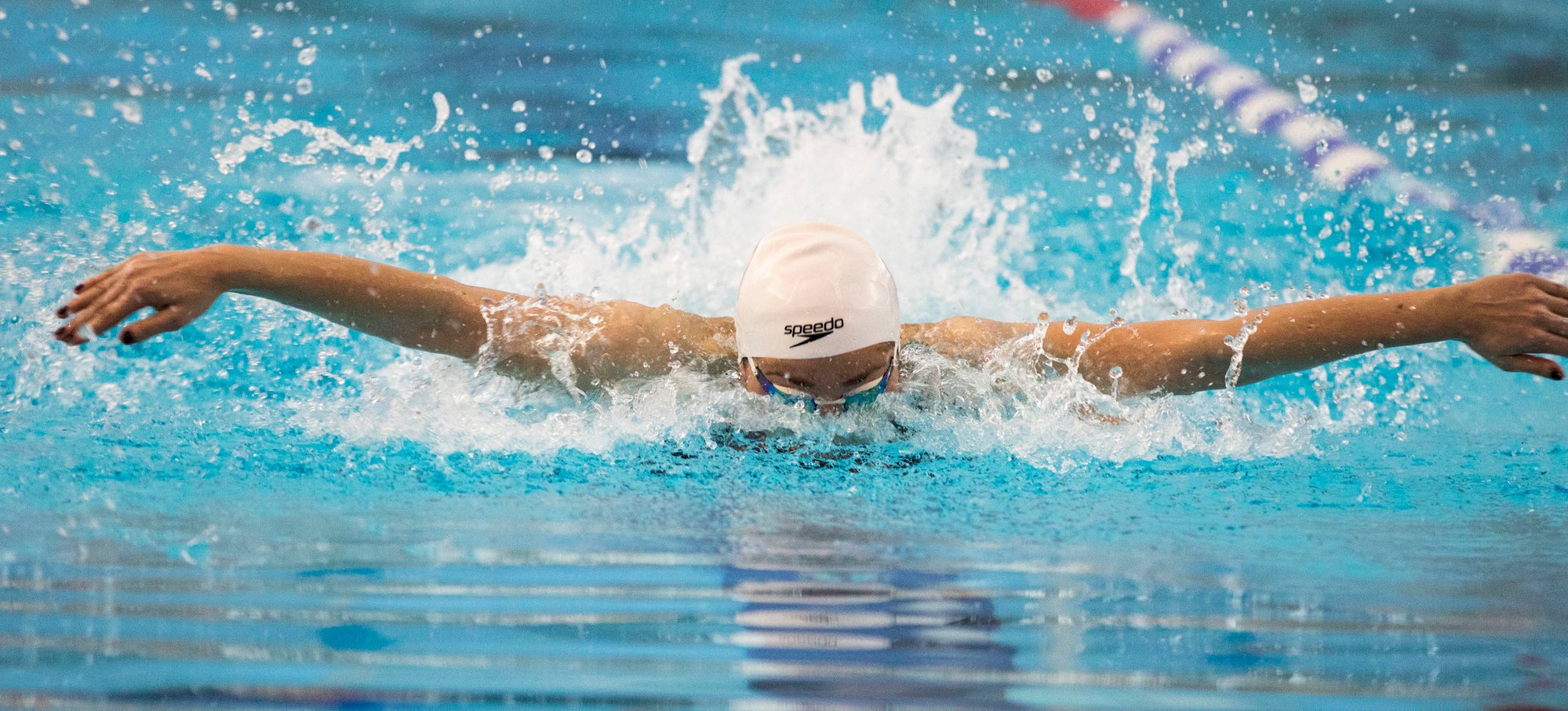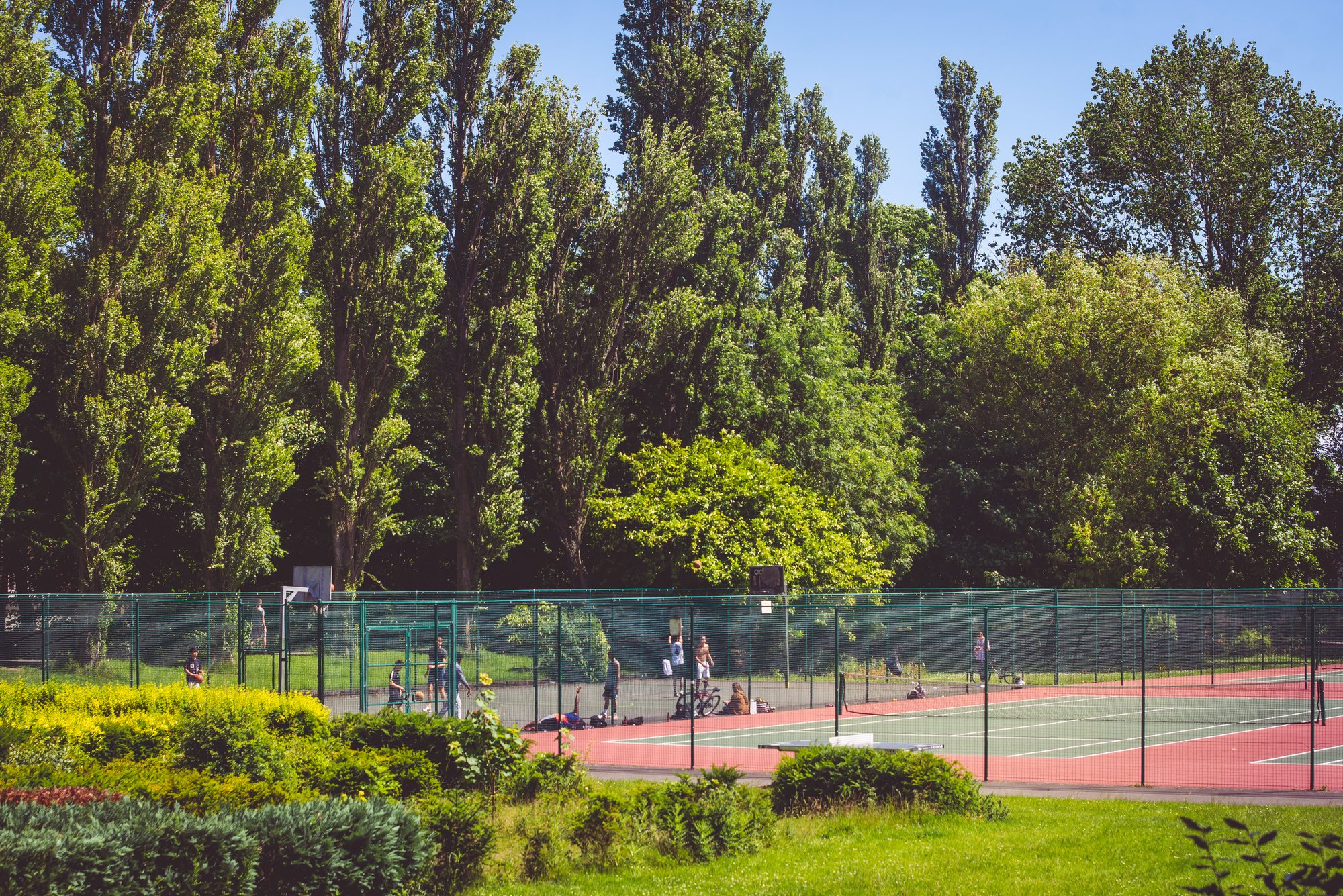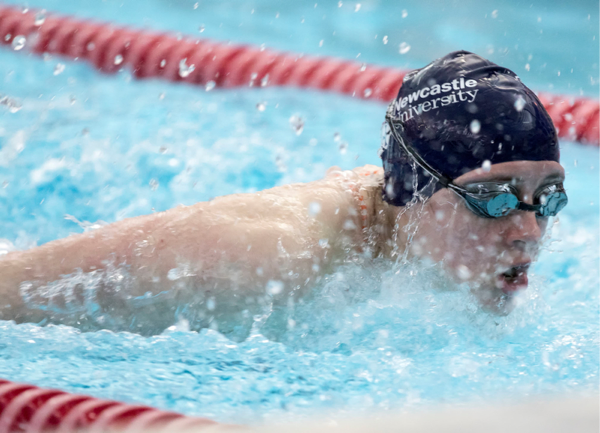Taking the plunge from lifeguard to PhD
Published: 20 March 2024 | Updated: 20 March 2024 | By: Jack, a Molecular Microbiology PhD student | 9 min read
Some may follow a well-established path from degree to masters to PhD, frequently others move into a related line of work before returning to academia. Some of us leave and dip into something very different to pay the bills before returning to research. I definitely fall into this last category having worked for two years as a lifeguard and swimming teacher whilst applying for PhDs.
So the question is, how has that benefitted me in my academic career?
Balancing work, study & leisure
Growing up I loved swimming, in Gateshead there was a leisure centre and park on the doorstep. I joined a local swimming club when I was nine and swam competitively throughout my time at school. I was fortunate to have brilliant coaches, who promoted a work ethic and embraced working with data in the sport. Sports science and physics were rooted within our training which meant I was fully immersed in how to improve through those marginal gains. Science and how things worked was everywhere in what I was doing. I was shown the importance and understanding of how these small incremental changes helped the elite athletes improve. I also grew up with a parent who has chronic illness and was in and out of hospital, so I saw a lot and asked plenty of questions. Fortunately, his storied career path through nursing to mechanic to baker meant I was hassling him with questions rather than the staff in the NHS. Between home and the pool, there was an emphasis on the importance of health, both mental and physical something that I still value today, recognising the value of fresh air and exercise to create some mental space. Unless its icy, I’m walking my commute which is a lovely hour-long break to warm up or decompress from the workday.
Swimming very easily became all-encompassing for me, training before and after school, competitions on weekends, like for so many who take part in grassroots sports, I ended up mucking-in and helping out at smaller competitions as a timekeeper or judge or team manager. These courses were the first steps into skills useful in the workplace. You had to efficiently manage your time and others. For those of you who have small children, organising them to be somewhere on time can feel like herding cats. Swimming competitions run to a programme and if you missed your race, you weren’t getting another chance that day. You also have to negotiate how other people are under stress and after poor performance, how you work within the team to support people during the highs and lows. There are courses to support you fulfilling these roles by the governing body, which keeps most grassroots sport going. At 17, I took a lifeguarding course, which is also a great part-time job to have, especially at university!

I had the privilege of living at home during this time so my board was smaller than rent, but I was still having to pay my way. As a casual member of staff, I was on a zero-hour contract, which meant I had to learn to balance my time efficiently – a skill I’m still putting to use today. Often, I was covering the back end of shifts, 7pm – 11pm and then attending my lectures the following day. This also taught me the pay-offs between having to work whilst being somewhat tired. I learned my limits as to what I found comfortable and productive, during this time. Like many jobs however, you sometimes just have to do the hours if there’s something you need to pay for or a deadline to meet. At the ripe old age of 29, I can’t hack late night after late night as I once did!
The other, more obvious side of this job was that you had to be good with time management. And like many students who now work a part time job, I found that I became very focussed in the time I had because those hours you are working mean you can’t work on assignments. Yet you still have to be striving for those higher grades. I learned to use the quieter hours on shift to digest topics I needed to revise for or bore colleagues with what I’d been learning about. There’s loads of cleaning as a lifeguard, most of it as a single occupancy job. In fact, you’ll get a nickname if you amble about in pairs. I find now that mundane tasks helps me not overthink it. I’ve had loads of ideas hoovering, not all of them useful.
Whilst studying for my undergraduate and masters degrees, I worked as a lifeguard and then swimming teacher. I continued lifeguarding and teaching whilst applying for PhD programmes and other laboratory science jobs.
The competition for both degree specific jobs and PhD programmes are very high, but you still have plenty of transferable qualities whatever you’ve done before a PhD. So, if you’re thinking of making a change and moving into university life, here’s some things that may help you make the transition.
1. Being responsible for your time – from set shifts to organising yourself
Getting possibly the biggest change out of the way first, whilst lifeguarding I was shift working and as a casual member of staff that meant you were asked to cover the shifts needed and planned around that. You got paid from when you clocked in and most things got left at the door or handed over to another member of staff. Ultimately, you’re a team member so there’s very few specific jobs that are only done by you.
During a PhD you may get a stipend which is paid to you as a monthly salary and your working hours are what you choose or need to do. This gives you some leeway for sickness, appointments and general productivity but it also means you have to be responsible for your project and how you spend your time. Depending on the group you’re in, you may have some admin tasks which you are responsible for too.
I found that the best thing for overcoming this change was to have a well-definedroutine. As a morning person I started earlier and got most of the heavy work done in the morning and tried to leave no later than 5pm. I had to be a bit flexible in order tocatch people for meetings, especially when academics are in fairly high demand between teaching and other meetings. But my top tip is to go in to meetings with an itinerary if you can so that you can use the time productively – so you can ask your questions and get out.Putting in place this structure to the day was really beneficial for me during the early stages of the PhD, when some of the work felt like an overwhelming step up and meant I was still able to keep a decent work-life balance.
2. Skill upkeep and continued professional development.
Whilst lifeguarding you are expected to do regular staff training to maintain skill levels in CPR, this is then provided as evidence when you renew your qualification every 2 years. During a PhD you have a number of induction courses which last 3 years, otherwise you’re learning as you go, in some cases you may have to do a qualification or may undertake courses which allow you to use specialist equipment or techniques.
Personally, I’ve found programming languages to be the closest thing to being like first aid upkeep, whereby if you don’t run scripts for a few weeks then you become a lot less efficient.
In terms of skill upkeep and development, you’re the captain of your own ship. If there’s a training experience that you’d like to do which aligns with the research there’s not a lot stopping you. If it’s expensive you can apply for support from funding bodies, the institution you work at or learned societies, you might be a part of.
Some of the development courses helped me to become a more well-rounded researcher, gaining insight into entrepreneurship through the YES competition, the entrepreneur scheme where, as part of a team, we designed a product and went through simulated investor pitches. I’ve also done an in-house course on how to chair/lead seminars which has been really helpful in facilitating questions on other people’s research. It can be really hard coming up with questions during a talk and is a real skill to learn. I didn’t capitalise on enough of the available opportunities when I was an undergraduate, which I later regretted, so I made sure to take all the opportunities offered so that I didn’t feel like that after my PhD.
More and more, post submission PhD graduates are leaving for alternative careers, and a PhD shouldn’t be moulding you to only fit in one area. It’s an opportunity to grow and develop whilst becoming an expert in a niche topic. Get involved, try something new and use the opportunity to do something a bit different!
3. Responsibility
Responsibility comes in different forms in the world of work. As both a lifeguard and swimming teacher you’re working to a variety of different guidelines; meeting the set standards of teaching, safety forms and first aid among others. There’s some overlap in training as a PhD student and I found the experience of form filling definitely overlapped as in biosciences we use COSHH forms and risk assessments all the time. The difference you face as being a PhD student is that you may be the first person carrying out that experiment in your area. You write and carry out the procedure. You have to look into and ensure you’re using chemicals correctly and in the right environment. This is exciting but also carries a responsibility.
Some procedures are only used by us, but often we pioneer experiments that are then used by future students in the group and further afield if it’s a published method, so you need to make sure that you’ve written it down coherently for someone else to follow. I worked out a new method within our lab which used a standard piece of equipment to check an experiment had worked quickly rather than having to do several hours of work to check. This method was picked up by other lab members and also shared with other lab groups. I also became known for having green fingers for a procedure, meaning it worked a couple of times, and now others in my lab use that written protocol when they work with those bacteria. Fortunately, I kept a detailed lab book to pass this on. That is a humble brag but a really dull one, but don’t just do it for the other people that follow you. Your future self will be thankful when it comes to write up!
Depending on what your previous job was, your responsibility for others may change.
This is a moveable feast, you might train new students in techniques or look after a piece of equipment. Some labs have a lab manager who organises stocks checks, otherwise that might fall to you. Delegation may happen, certainly in our group, we share the load and have practices in place that helps avoid lots of stresses. Teamwork does in fact, make the dream work!
-2.png?width=1200&height=628&name=Untitled%20design%20(12)-2.png)
4. Inspiration, guidance and mentoring
As a lifeguard, the mentorship and progression review process were pretty much a formality. I found the opportunities for further learning and continued professional development were fairly narrow. In academia, I have found it’s a different story.
I fortunately kept in touch with a number of peers from my degree studies who went on amazing adventures and I thought, that’s a bit of me. There’s nothing quite like seeing someone presenting at a conference abroad after you’ve had to scoop sick out of the small pool to ignite a career change.
I had also stayed in touch with my undergraduate supervisor who first made me think I could be a researcher despite feeling out of the loop and a chat with them added more fuel to the fire.
Once in the programme, I found I was surrounded by inspirational characters. My current supervisor and researchers in the wider theme had an infectious enthusiasm for what they did. And also, how they managed to get involved in other different seemingly distant research areas. From bacteria on teeth to barnacles on boats?!
I found the guidance and mentoring to be invaluable, having a different set of eyes whether within your research area or slightly outside of it, can make a huge difference to moving in the right direction. Even more so when you feel stuck. You aren’t expected to do it all on your own, team science is how a lot of knowledge is gained. Our research is peer reviewed to be published. As Issac Newton wrote “If I have seen further, it’s from standing on the shoulders of giants”.
The camaraderie of having other students at different stages of their PhD as well as supervisors has meant a lot to me, from conversations post presentation to brief chats in the corridor about everything from experimental design to life in general.
5. Looking after you.
Some shifts are harder than others, some days it feels like you’ve not stopped and others where you’ve barely done anything at all! A statement shared between both jobs, but where one may be filled with incidents, first aid conducted, near misses and copious amounts of cleaning, the other may be back-to-back experiments, data analysis and dealing with deliveries. Both can be fairly stressful, albeit while one has fewer serious consequences (lab, definitely lab) that doesn’t mean you shouldn’t have activities to decompress when you’re not in the lab.
Find your thing, What’s your vibe, what’s your tribe. Having something to do whether you’re on your own or with others that washes away your worries for even a few hours is hugely worthwhile. Doing a PhD can feel isolating, it certainly felt like that during the pandemic. So having those activities with others which lessen that feeling is ideal.
I got into running and park-running before the pandemic alongside swimming but when all the buildings closed running continued. I find a lot of catharsis in exercise, and it quiets the mind, nothing makes you think less about the extra things you could be doing like running round parks or uphill on trails. Park-run covers a lot of the community aspects, going weekly to my local park-run I see the same people and have chat with them and check in. If someone hasn’t been there for a few weeks, there’s plenty of people asking how you are, good to see you, etc. Alternatively, for low impact I enjoy stand-up comedy or sci-fi films and TV or building the occasional Lego set. I know lots of people that join team sports or theatre groups or even do board game nights. So yeah, find your thing to decompress. Never forget you are more than your PhD.
And finally…. Nobody said it was easy, no one ever said it would be this hard
The entry – or return - to academia can be daunting, especially if you’ve not been regularly writing or learning new skills and techniques for some time. As Coldplay said ‘Nobody said it was easy, no one ever said it would be this hard.’ This journey has been the hardest challenge I’ve ever undertaken. It’s 3-4 years of being accountable for over 95% of your work that’s done to push the boundaries of what’s known by humanity.
You could be the first or one of few people to make a new discovery, and that’s exciting. If you publish your work, there’s then record of your contributions to what we know as we stumble through history. And if that’s too poetic for you, the opportunities to improve yourself are innumerable. You learn new skills, you communicate with different groups of people, specialists and non-specialists. There’s opportunity for you to be the change, giving positive experience to learners and paying the kindness you’ve received forward.
It might feel difficult at first, but give yourself the space and kindness to become a learner once again.
